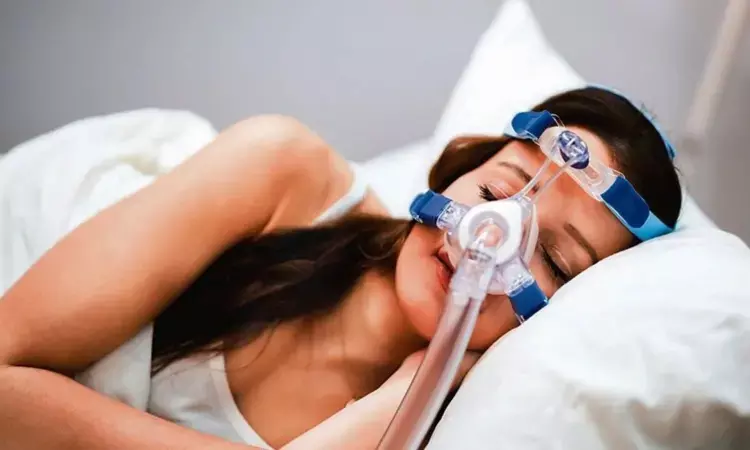- Home
- Medical news & Guidelines
- Anesthesiology
- Cardiology and CTVS
- Critical Care
- Dentistry
- Dermatology
- Diabetes and Endocrinology
- ENT
- Gastroenterology
- Medicine
- Nephrology
- Neurology
- Obstretics-Gynaecology
- Oncology
- Ophthalmology
- Orthopaedics
- Pediatrics-Neonatology
- Psychiatry
- Pulmonology
- Radiology
- Surgery
- Urology
- Laboratory Medicine
- Diet
- Nursing
- Paramedical
- Physiotherapy
- Health news
- Fact Check
- Bone Health Fact Check
- Brain Health Fact Check
- Cancer Related Fact Check
- Child Care Fact Check
- Dental and oral health fact check
- Diabetes and metabolic health fact check
- Diet and Nutrition Fact Check
- Eye and ENT Care Fact Check
- Fitness fact check
- Gut health fact check
- Heart health fact check
- Kidney health fact check
- Medical education fact check
- Men's health fact check
- Respiratory fact check
- Skin and hair care fact check
- Vaccine and Immunization fact check
- Women's health fact check
- AYUSH
- State News
- Andaman and Nicobar Islands
- Andhra Pradesh
- Arunachal Pradesh
- Assam
- Bihar
- Chandigarh
- Chattisgarh
- Dadra and Nagar Haveli
- Daman and Diu
- Delhi
- Goa
- Gujarat
- Haryana
- Himachal Pradesh
- Jammu & Kashmir
- Jharkhand
- Karnataka
- Kerala
- Ladakh
- Lakshadweep
- Madhya Pradesh
- Maharashtra
- Manipur
- Meghalaya
- Mizoram
- Nagaland
- Odisha
- Puducherry
- Punjab
- Rajasthan
- Sikkim
- Tamil Nadu
- Telangana
- Tripura
- Uttar Pradesh
- Uttrakhand
- West Bengal
- Medical Education
- Industry
Tirzepatide Therapymay significantly Reduce Effects of Obstructive Sleep Apnea in Obese Patients: NEJM

A recent study published in the New England Journal of Medicine suggests that tirzepatide which is primarily used to treat type 2 diabetes, may significantly improve the symptoms in patients with moderate-to-severe obstructive sleep apnea (OSA) and obesity. These two phase 3, double-blind, randomized, controlled trials highlights the potential of tirzepatide to become a novel treatment option for this serious condition.
The trials enrolled adults with moderate-to-severe OSA and obesity with the participants divided based on their use of positive airway pressure (PAP) therapy. Trial 1 included the individuals not using PAP therapy, while Trial 2 included participants already on PAP therapy. In each trial, the participants were randomly assigned to receive either the maximum tolerated dose of tirzepatide (10 mg or 15 mg) or a placebo for 52 weeks. The primary endpoint was the change in the apnea–hypopnea index (AHI), which measures the severity of sleep apnea by counting the number of apneas (pauses in breathing) and hypopneas (shallow breaths) per hour of sleep.
The baseline mean AHI was 51.5 events per hour in Trial 1 and 49.5 events per hour in Trial 2 that indicated severe OSA in participants. After 52 weeks, the results showed a dramatic reduction in AHI among the patients treated with tirzepatide when compared to the placebo group. In Trial 1, the AHI decreased by 25.3 events per hour in the tirzepatide group against a reduction of only 5.3 events per hour in the placebo group. Trial 2 showed a similar pattern with a reduction of 29.3 events per hour in the tirzepatide group when compared to 5.5 events per hour in the placebo group. These findings were statistically significant by suggesting that tirzepatide substantially reduces the severity of OSA.
Beyond AHI reductions, tirzepatide also led to significant improvements in several secondary endpoints. The participants underwent considerable weight loss, reduced hypoxic burden (the total time spent with low oxygen levels during sleep), lower high-sensitivity C-reactive protein (hsCRP) concentrations (a marker of inflammation) and decreased systolic blood pressure. Also, patient-reported outcomes regarding sleep impairment and disturbance showed significant improvements.
The findings of this study indicated that tirzepatide could become a vital treatment for individuals with moderate-to-severe OSA and obesity by offering significant reductions in AHI, weight and associated cardiovascular risk factors. Further research and real-world studies will be imperative to confirm these results and establish long-term safety and efficacy.
Source:
Malhotra, A., Grunstein, R. R., Fietze, I., Weaver, T. E., Redline, S., Azarbarzin, A., Sands, S. A., Schwab, R. J., Dunn, J. P., Chakladar, S., Bunck, M. C., & Bednarik, J. (2024). Tirzepatide for the Treatment of Obstructive Sleep Apnea and Obesity. In New England Journal of Medicine. Massachusetts Medical Society. https://doi.org/10.1056/nejmoa2404881
Neuroscience Masters graduate
Jacinthlyn Sylvia, a Neuroscience Master's graduate from Chennai has worked extensively in deciphering the neurobiology of cognition and motor control in aging. She also has spread-out exposure to Neurosurgery from her Bachelor’s. She is currently involved in active Neuro-Oncology research. She is an upcoming neuroscientist with a fiery passion for writing. Her news cover at Medical Dialogues feature recent discoveries and updates from the healthcare and biomedical research fields. She can be reached at editorial@medicaldialogues.in
Dr Kamal Kant Kohli-MBBS, DTCD- a chest specialist with more than 30 years of practice and a flair for writing clinical articles, Dr Kamal Kant Kohli joined Medical Dialogues as a Chief Editor of Medical News. Besides writing articles, as an editor, he proofreads and verifies all the medical content published on Medical Dialogues including those coming from journals, studies,medical conferences,guidelines etc. Email: drkohli@medicaldialogues.in. Contact no. 011-43720751


